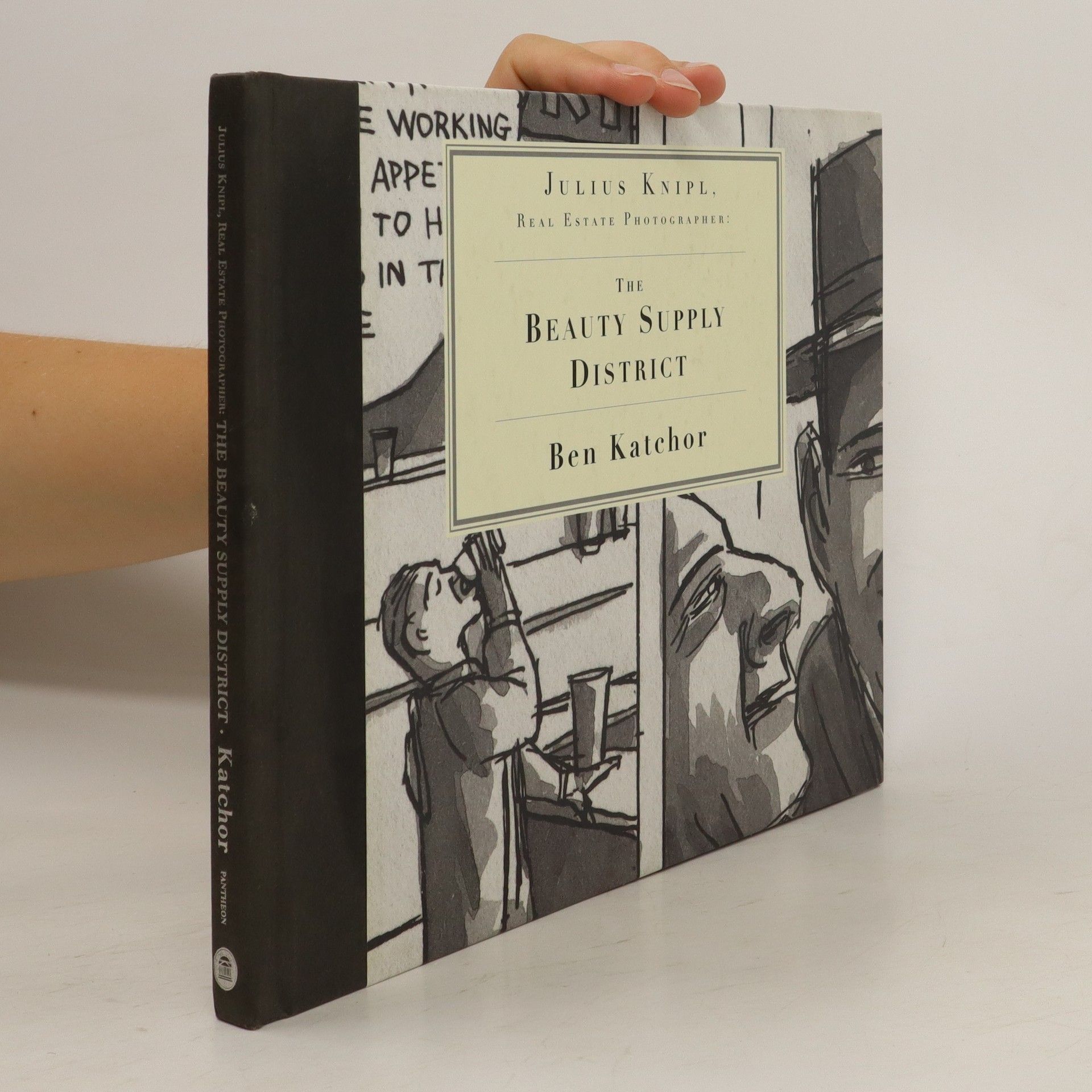From one of the most poetic and gifted comic-strip artists working today--andauthor of "The Jew of New York"--comes the first collection about his belovedprotagonist, Julius Knipl, Real Estate Photographer.
Ben Katchor Books
Ben Katchor is an American cartoonist whose work evokes a slightly surreal, historical New York City infused with a distinct Jewish sensibility. His comics delve into themes of urban life, art, and culture, characterized by a unique humor and meticulous attention to detail. Katchor's distinctive style and his ability to conjure the atmosphere of a bygone era make his creations memorable. His influence resonates in contemporary graphic arts, inspiring creators with his visual language and narrative depth.



The Dairy Restaurant
- 224 pages
- 8 hours of reading
"For The Dairy Restaurant, Ben Katchor retells the history of where we choose to eat--a history that starts with the first man allowed to enter a walled garden and encouraged by the garden's owner to enjoy it's fruits.In this brilliant, sui generis book, Ben Katchor illuminates the unique historical confluence of events and ideas that led to the proliferation of the dairy restaurant in New York City. In words and his inimitable drawings, he begins with Adam, entering Eden and eating the fruits therein. He examines ancient protocols for offerings to the gods and the kosher milk-meat taboo. He describes the first vegetarian practice, the development of inns offering food to travelers, the invention of the restaurant, the rise of various food fads, and the intersection between culinary practice and radical politics. Here, too, is an encyclopedic directory of dairy restaurants that once thrived in New York City and its environs, evoked by Katchor's illustrations of classified advertisements, matchbooks, menus, and phone directory listings. And he ends on an elegiac note as he recollects his own experience in one of these unique restaurants just before it disappeared--as have all the dairy restaurants in the New York metropolitan area"-- Provided by publisher
L'ebreo di New York
- 105 pages
- 4 hours of reading
Questa epopea di ambizioni sconfitte e di frenesie finanziarie prende le mosse da fatti realmente accaduti: nel 1825 Mordecai Noah, politico newyorkese in preda a una visione utopistica, tentò di creare uno stato ebraico su un'isoletta vicino a Buffalo, dove intendeva riunire tutte le tribù perdute di Israele. Il romanzo a fumetti di Katchor è ambientato alcuni anni dopo il fallimento di questo progetto. Per le strade di New York si aggirano, si incontrano ed esibiscono le loro stramberie i personaggi più diversi: un ex macellaio kosher in disgrazia, un importatore di articoli religiosi e di biancheria femminile, un eccentrico che vuole immettere anidride carbonica nel lago Erie per ricavarne acqua frizzante da distribuire attraverso i rubinetti di casa, un cabalista errabondo che si aggira per i ristoranti studiando con puntiglio i rutti che - secondo lui - costituiscono la chiave di un linguaggio mistico smarrito. Questi e molti altri personaggi compongono il bizzarro affresco di un Nuovo Mondo sospeso a metà fra la bancarotta - finanziaria e morale - e l'elusiva, frustrante ricerca di Dio.